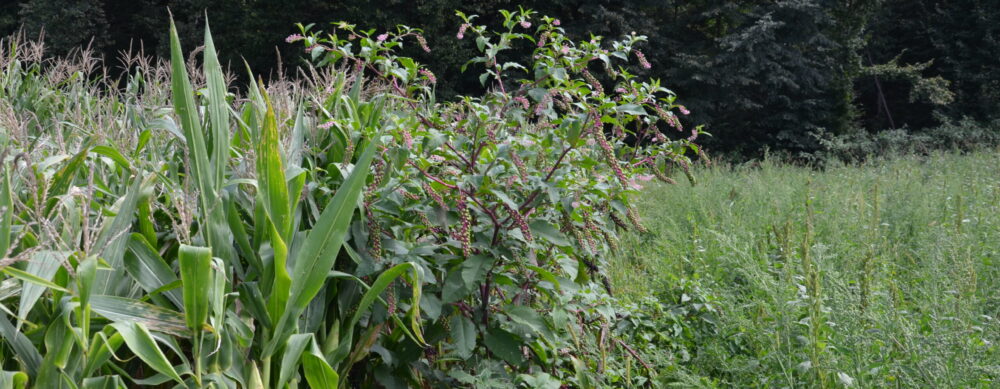In Europe, species such as Japanese Knotweed (Fallopia spp.), Himalayan Balsam (Impatiens glandulifera), and Common Ragweed (Ambrosia artemisiifolia) have become significant invasive weeds. In many areas, they damage not only agriculture but also local biodiversity, making their control even more important. This primarily involves curbing new populations to prevent further spread.

Early detection and control of these invasive weeds are critical to stopping their expansion. Measures such as mechanical removal or the use of biological control methods offer sustainable solutions. Early detection is also the most cost-effective control method in the long run, both for invasive species and for weeds.
Vilà et al. (2011) have extensively documented the impacts of invasive species on ecosystems, showing that they can have significant negative effects on biodiversity and agriculture.
Vilà, M., et al. (2011). Ecological impacts of invasive alien plants: a meta-analysis of their effects on species, communities, and ecosystems. *Ecology Letters*, 14(7), 702-708. Link to summary: https://onlinelibrary.wiley.com/doi/10.1111/j.1461-0248.2011.01628.x
